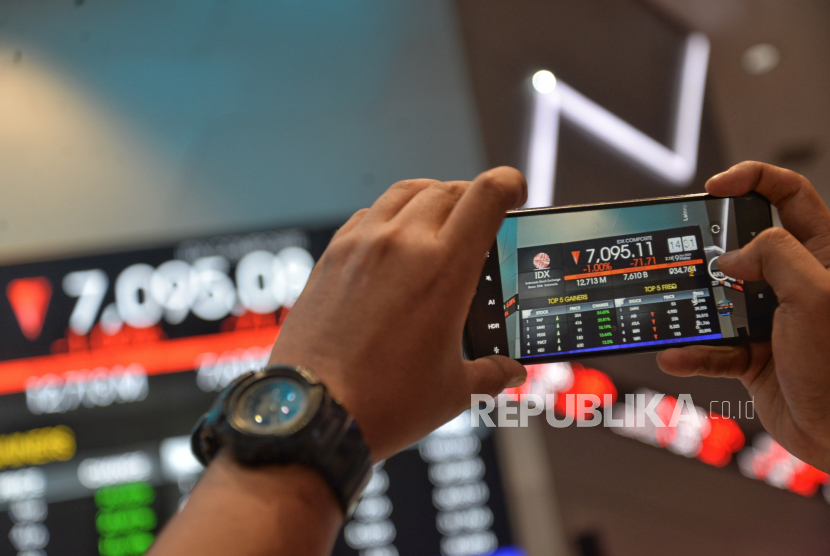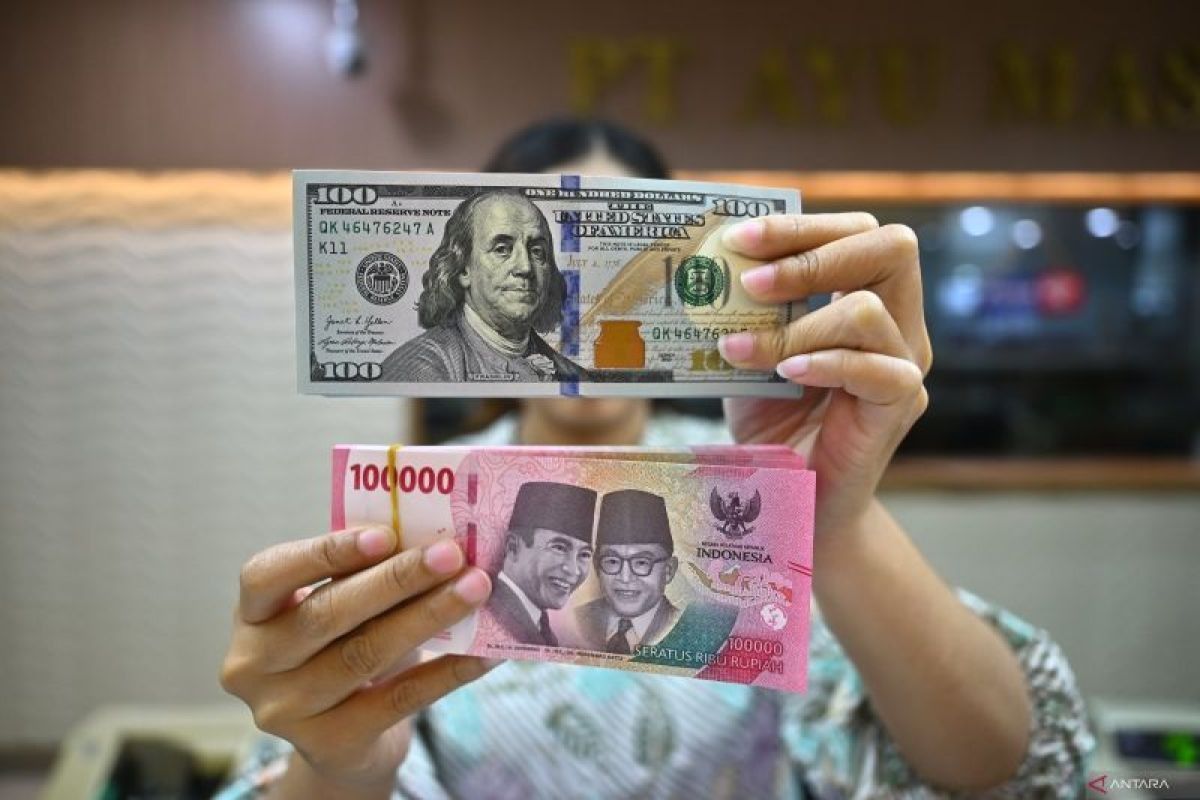Rupiah Closes Slightly Stronger at Rp16,376 per US Dollar
The strengthening of the rupiah against the US dollar is predicted to be temporary amid lingering external pressures.

TEMPO.CO, Jakarta - The on Wednesday, February 12, 2025, closed slightly stronger by 7 points at the level of Rp16,376 per US Dollar. Currency observer Ibrahim Assuaibi said that the Rupiah had initially jumped by 35 points before correcting. The strengthening is predicted to be temporary amid lingering external pressures.
Ibrahim assessed that external factors still dominate the Rupiah's movement, particularly the resurgence of protectionist trade policies by U.S. President Donald Trump. "Investors are still considering the impact of higher trade tariffs imposed by Trump. This policy has the potential to support U.S. inflation and burden economic growth in the coming months," said Ibrahim in an official statement on Wednesday, February 12, 2025.
In addition, the stance of Federal Reserve Chairperson Jerome Powell, Ibrahim said, conveying that The Fed is not in a hurry to cut interest rates also burdens the movement of the Rupiah. Powell, in his testimony before the Senate Banking Committee last Tuesday, affirmed that the U.S. economy is still quite strong despite The Fed having cut interest rates by 1 percent in 2024.
"The Fed is still reluctant to signal further interest rate cuts, and this keeps the dollar strong in the global market," Ibrahim said. Meanwhile, the U.S. Consumer Price Index (CPI) inflation data released today also grabbed the attention of market players, with Goldman Sachs analysts estimating stable or even slightly higher inflation figures than expected.
Domestically, Indonesia's economy in the first quarter of 2025 is predicted to remain stable with growth of around 4.98 to 5 percent, supported by domestic consumption and investment. However, Ibrahim assessed that household consumption is still relatively flat, as seen from the negative bank balance net. "This indicates that the public, especially the lower middle class, has depleted their savings to maintain consumption," he said.
Several government policies, such as the Free Nutritious Meal (MBG) program, a 6.5 percent increase in the Provincial Minimum Wage (UMP), and a 50 percent electricity discount during February 2025, are still deemed insignificant in impacting public purchasing power.
"The MBG program will indeed support the logistics and food and beverage sectors, but because it is still being implemented gradually, its contribution to the first quarter's economic growth is only around 0.1 percent," he said.
Export performance is also predicted to remain stagnant, while imports are potentially dampening economic growth. This trend is similar to last year when rising imports hindered national economic growth.
As for tomorrow's trading, the Rupiah is predicted to fluctuate with a tendency to weaken in the range of Rp16,360 to Rp16,430 per US . "Pressure from U.S. economic policies will continue to dominate the movement of the Rupiah, especially with the uncertainty of the direction of The Fed's interest rates and the impact of Trump's trade tariffs," he said.
With the still tumultuous global situation, the Rupiah still faces significant challenges in maintaining its strength. The government and domestic financial authorities need to continue to anticipate external pressures to ensure the stability of the national economy.
Editor's Choice:
to get the latest news updates from Tempo on Google News




















